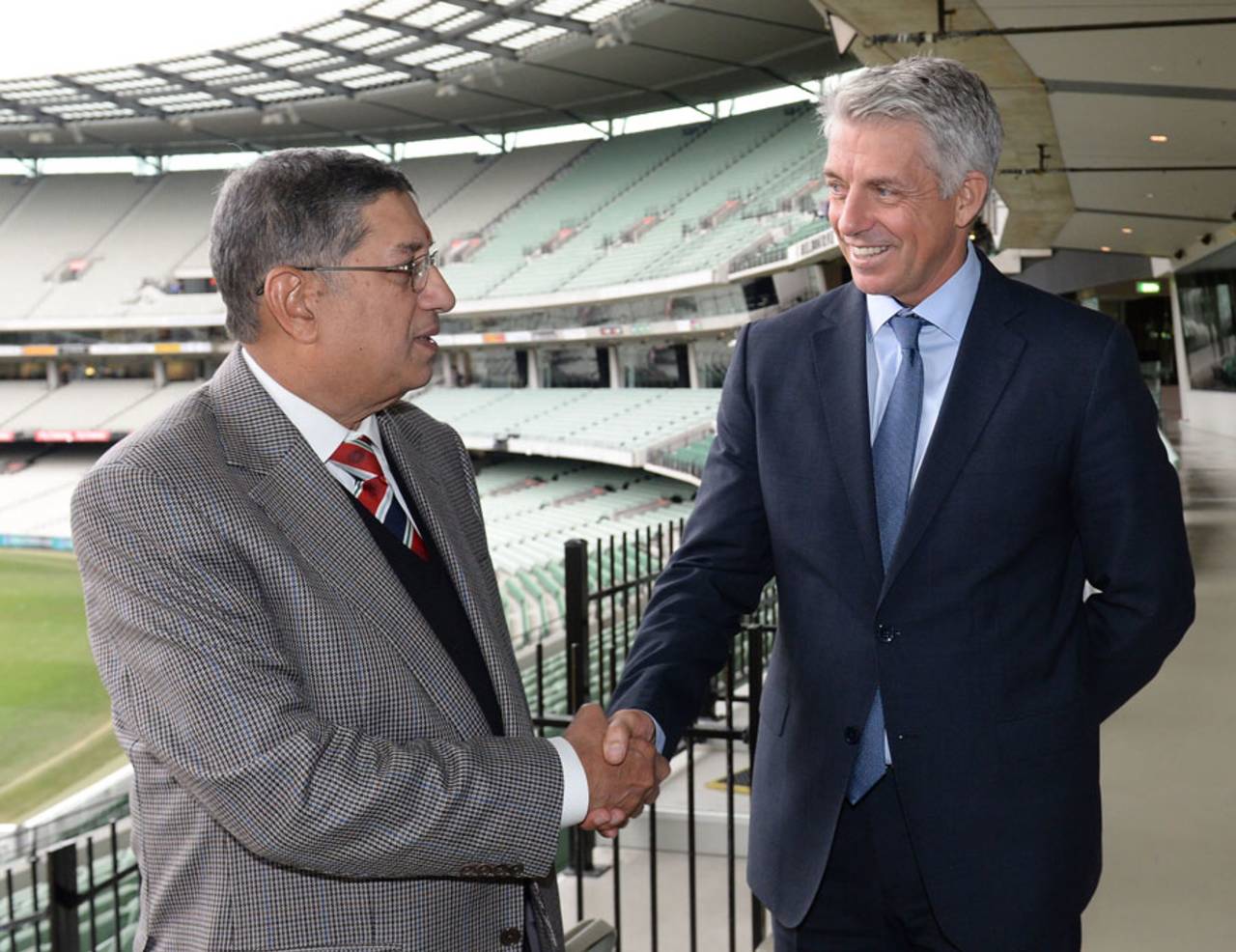When I hear reports of
a possible cricket rebellion it usually elicits one of two reactions: excitement or scepticism. In the latest case involving the Essel Group registering website domains and company names that bear a close resemblance to a cricket board, I experienced both the above emotions.
On the one hand, there's excitement because any move that might improve cricket administration promotes a sense of intrigue. Like the World Series Cricket (WSC) revolution in the late '70s, it invokes a feeling akin to exploring the unknown. In the present case there's also a great deal of scepticism because of the Essel Group's previous association with the Indian Cricket League (ICL), which was beset by rumours of failure to fully recompense players and systemic corruption. There's also added reason for scepticism: the boards now pay their players far better than they did when WSC was formed, and the IPL has evolved into a flowering money tree, and that's where the bulk of the more skilful and marketable players are already plying their trade.
Consequently, players have far more monetary power than at any time in the past. There are some disgruntled players from the weaker administrations, like West Indies, but a number of them achieve financial satisfaction by becoming T20 mercenaries.
Therefore it's going to cost a rebel group a pretty penny (there's already talk of ten-year, $50m contracts) to prise the top players away from their financial comfort. A breakaway group is more likely to have success in attracting lesser lights - those players disillusioned with a weak administration, and disgruntled cricketers from the Associate teams, who feel the ICC treats them as second-class citizens.
There were a couple of interesting revelations accompanying the announcement of the Essel Group's thrust: the news that FICA (the international players' body) had been approached, and suggestions that Lalit Modi was involved. Later bulletins revealed that Modi declined the approach but supported an attempt to globalise a sports body.
Any attempt to establish an opposition cricket administration via a revolution would need player unity. The administrators have been smart enough to ensure the current players are financially secure
I have long felt that cricket should be run globally, not as is the present case, on a part-international and part-national basis. The current situation is inadequate in many ways but especially in providing a balanced schedule, and it also allows administrators too much leeway to avoid action, saying things don't come under their jurisdiction.
The other important area where the administration has failed the game is corruption. With all the information that is swirling around - a mixture of rumour and innuendo with a degree of fact - more should have been done to clean up the game.
In his response, Modi also made reference to a global body "benefiting the players and the fans". Unlike in the 1970s, the players now (in most cases) are well looked after but the fans are shortchanged. Any new body that genuinely represents the fans' needs would be well received. The arrogant hijacking of the ICC by the Big Three has not gone down well, and an administrative shake-up is long overdue.
However, the Essel Group isn't the shining knight riding in on a white charger. On the strength of their previous endeavours, they would engender even less faith in their ability to run the game than is currently afforded the ICC.
Still, it won't hurt if the ICC does receive a jolt, as at times their approach appears delusional. Not surprisingly, they were quick to investigate the prospective uprising, probably because of a previous chastening experience. The game took a financial hiding from Kerry Packer back in the '70s, and while the coffers are now better stocked, they won't want a prolonged and bitter battle to protect their property.
In the end, this latest episode could just be the Essel Group doing a Kerry Packer and trying to use insurrection as a threat to obtain an improved television deal.
Any attempt to establish an opposition cricket administration via a revolution would require a high degree of player unity. The administrators have been both fortunate and smart enough to ensure the current players are financially secure. This makes the job of a prospective usurper difficult, as the players would likely be split along the lines of the haves and the have-nots.
Former Australia captain Ian Chappell is now a cricket commentator for Channel 9, and a columnist
